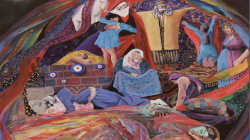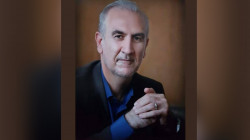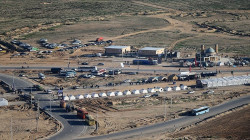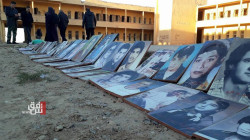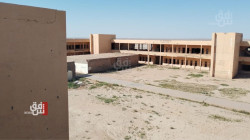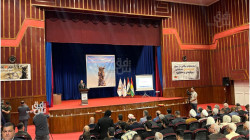Naseer Shamma: The Feyli-Kurdish who charmed the world
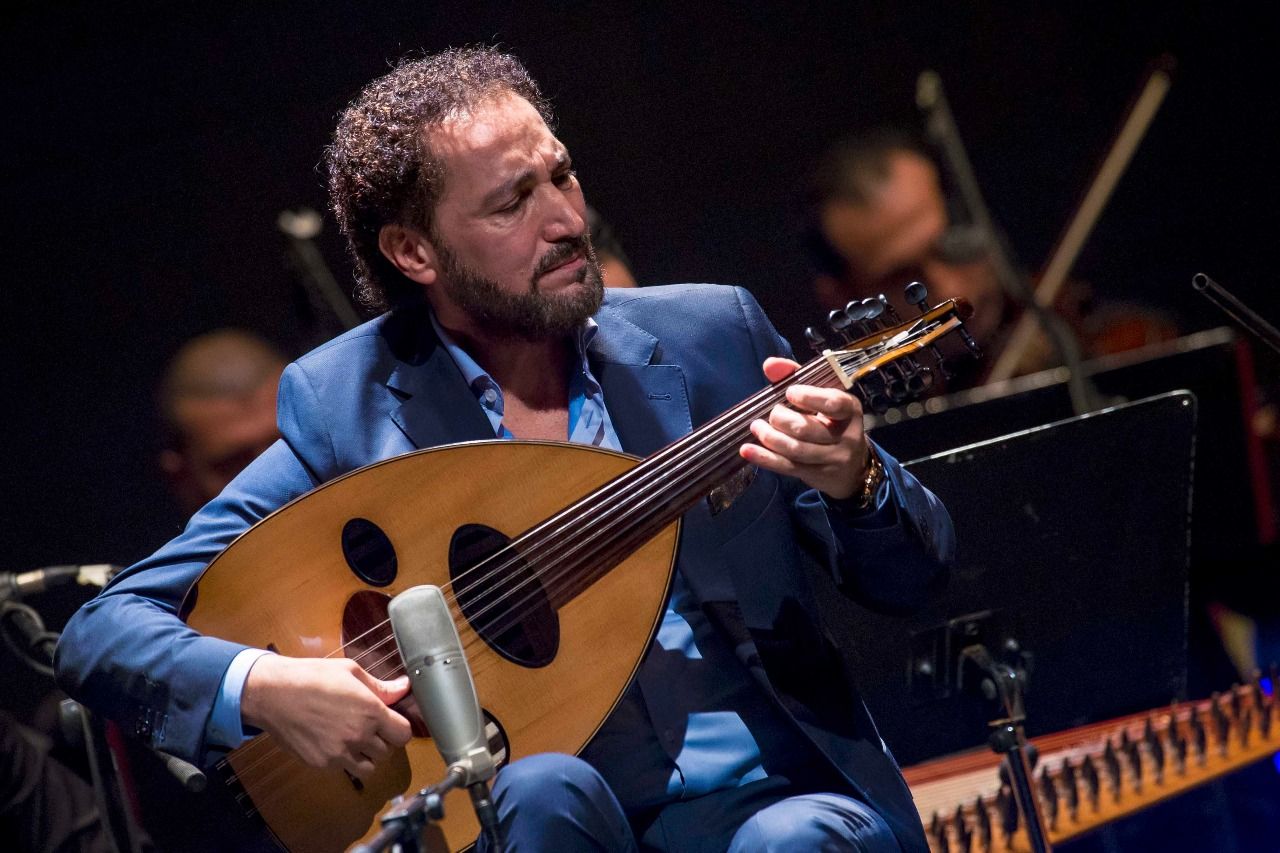
Shafaq News/ It is rare for a public figure or an artist to gain the appreciation in Iraq and the region, like the Iraqi musician Naseer Shamma, who has added a new silverware to his cabinet.
It is no exaggeration to say that his name gives an additional value to any award, an honorary position, or festival. His contributions to the festivals and musical events automatically raise their value.
He played for Iraq, Lebanon, and Palestine.. for history, art, peace, love, displacement, and poverty, carrying the beauty and the virtue of his charming strings through the countries, capitals, and festivals.
"Music is not a luxury. If it is, it would not have existed since the ancient era of Babylon through to our in churches, temples, and everywhere", Naseer Shamma said in a televised interview last October.
Music, he believes, is a human need. He believes that the lack of music and art lessons in the Iraqi schools severely affected today's youth. He recalls his personal experience when he started playing Oud during his elementary school, and how he performed Othello's historical character in elementary and middle school, "such education must be restored. Look at nowadays' music’s ever-declining quality; the music, the lyrics, the recording! This is detrimental!”.
Due to his belief in the importance of music in the people’s lives, Naseer called for the Institute of Tonal Studies and the School of Music and Ballet’s restoration as they were in the 1970s, “You cannot build a society over a night; but at least we have to start with this."
Naseer Shamma is a Feyli-Kurdish, born in Kut in 1963 and finished his university studies at the Institute of Musical Studies, majoring in Oud, in Baghdad in 1987. With his Oud and skillful fingers, he toured the world to spread his joyous, sorrowful, and passionate music. His first international concert was held in France in 1985, and his first Iraqi concert was in the same year. His first foreign tour was to Germany - alongside the great artist Mounir Bashir - then Switzerland and Greece.
He added his own creative touch early in the music world. In 1986, he announced the completion of the octagonal Oud strings - based on Al-Farabi’s perceptions about 1,000 years ago.
However, his best achievement was in 1999 when he founded the “Arab Oud House” in Egypt, and then similar venues in Abu Dhabi, Constantine in Algeria, and Alexandria in Egypt.
Naseer Shamma’s music is characterized by a mystical touch. He eradicated the distance between music and poetry, benefitting from the works of Badir Shaker Al-Sayyab, Mahmood Darwish, Amal Dinkel, Ibrahim Zidan, Fadwa Toukan, Lami’a Abbas Imara, and Adonis. He also honored Mudhaffar Al-Nawab in one of his concerts.
Naseer Shamma’s music bridges the gaps of the soul and delivers it to a place where there is no pain.
In addition to his own records - which he composed, produced, and toured the Arab region, Europe, and America with - Naseer Shamma also composed many theatrical works, series, and documentaries. He has also contributed a lot of work to radio and television, both inside and outside Iraq.
His music album, "Happened at Al-Ameriya," was a sensation in music circles after he succeeded in conveying a picture of the Iraqis suffering under sanctions and war in 1991 when hundreds of civilians were killed Al-Ameriya shelter by U.S. bombardment.
Lebanon has always been the focus of Naseer Shamma's attention. During the Israeli aggression against Lebanon in 2006, he organized a ceremony entitled "Lebanon is built and rise above the dreams."
After Beirut Port explosion in August 2020, he participated in an online concert to support the Lebanese people and raise funds for the victims.
He posted at the time on Facebook, "As an Iraqi waiting for his country to rise from the pain and sorrow, I always look at Lebanon as a great sign of hope. Every time, Lebanon embraces its pain and rises again like a phoenix. Lebanon has been spreading hope in all of us, and now we will reach out to it and embrace its wound".
Naseer Shamma has received countless awards for his works and artistic contributions in Iraq, Egypt, Morocco, and Europe.
In 2017, UNESCO named Shamma as "UNESCO Artist of peace" for the second consecutive term in recognition of his dedication to supporting the musical education of young people in Iraq and beyond and his unfailing efforts to promote the message of peace through his musical performances, and his commitment to the organization's values and global goals.
On the anniversary of October revolution in Iraq, Naseer Shamma posted on Facebook, "Every time I wish to talk about music, I find myself dreaming about everything that occupies my mind about my family and Iraqis and what concerns them. I never felt that music is separated from people's worries. Today is the first anniversary of the Iraqi October Revolution. This revolution has given us hope of building a new Iraq and has made us feel that tomorrow is better. Our hearts and voices are with you, the youth of Iraq. Our revolution will always remain peaceful and patriotic”.
As the culmination of his creativity, Shamma began the year by being awarded the "world's most influential figure of the year award", presented by the Dutch International Organization for Freedom and Protection of Human Rights and World Peace.
Shamma, who toured the world, did not forget his Kurdish origins. Yesterday, he was in Khanaqin wearing the national folkloric costume, announcing special programs for the city, "My father is from Khanaqin, my mother is from Kut, and I grew up in Baghdad," like his unforgettable concert "Daffodil Cities" from Erbil’s historical Citadel.
